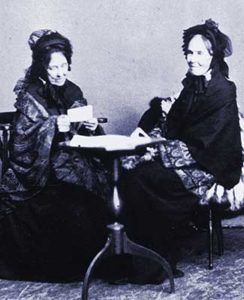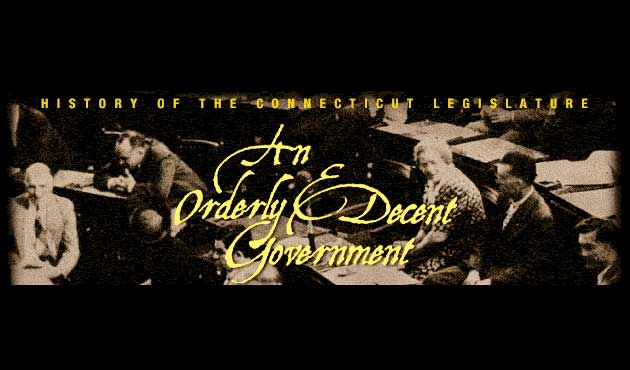Struggling for Equal Rights
In 1870, the 15th Amendment to the US Constitution gave African American men the right to vote. Six years later, Connecticut ratified a similar amendment to the state constitution. African Americans were about 2 percent of the state’s population in the 1870s.
Invoking the Revolutionary theme of “taxation without representation,” the Smith sisters of Glastonbury refused to pay local taxes until they were given the right to vote. In 1874, the town auctioned the Smith’s cows to obtain the contested taxes.
“How much better if liberty and equality indeed ruled throughout the land, as is the boast of men.”

Julia and Abby Smith, c. 1875
– Julia Smith, Suffragist, 1875
The Connecticut Woman Suffrage Association, founded in 1869, pressed the General Assembly to amend the state constitution so that women could vote. A committee appointed to examine the issue responded with a draft amendment, which the legislature rejected.
By the 1870s, the existence of two capital cities was viewed as awkward and ineffective. Hartford won out over New Haven by offering $500,000 to build a new capitol, which was completed in 1878.
This article is a panel reproduction from An Orderly and Decent Government, an exhibition on the history of representative government in Connecticut developed by Connecticut Humanities and put on display in the Capitol concourse of the Legislative Office Building, Hartford, Connecticut.
<< Previous – Home – Next >>









